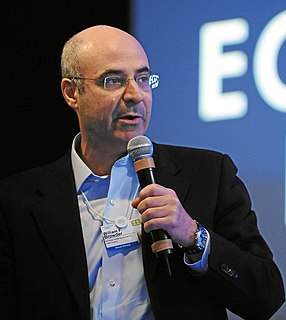A Quote by Robert J. Shiller
I think we do need to try to not just rely on the central bank to, in its wisdom, adjust interest rates, but allow for people to avoid being exposed to inflation risk.
Related Quotes
When you own gold you're fighting every central bank in the world. That's because gold is a currency that competes with government currencies and has a powerful influence on interest rates and the price of government bonds. And that's why central banks long have tried to suppress the price of gold. Gold is the ticket out of the central banking system, the escape from coercive central bank and government power.
So: if the chronic inflation undergone by Americans, and in almost every other country, is caused by the continuing creation of new money, and if in each country its governmental "Central Bank" (in the United States, the Federal Reserve) is the sole monopoly source and creator of all money, who then is responsible for the blight of inflation? Who except the very institution that is solely empowered to create money, that is, the Fed (and the Bank of England, and the Bank of Italy, and other central banks) itself?
The lesson for Asia is; if you have a central bank, have a floating exchange rate; if you want to have a fixed exchange rate, abolish your central bank and adopt a currency board instead. Either extreme; a fixed exchange rate through a currency board, but no central bank, or a central bank plus truly floating exchange rates; either of those is a tenable arrangement. But a pegged exchange rate with a central bank is a recipe for trouble.
[Australian Reserve Bank] Governor MacFarlane said recently when Paul Volcker broke the back of American inflation it's regarded as the policy triumph of the Western world. When I broke the back of Australian inflation they say, "Oh, you're the fellow that put the interest rates up." Am I not the same fellow that gave them the 15 years of good growth and high wealth that came from it?

































